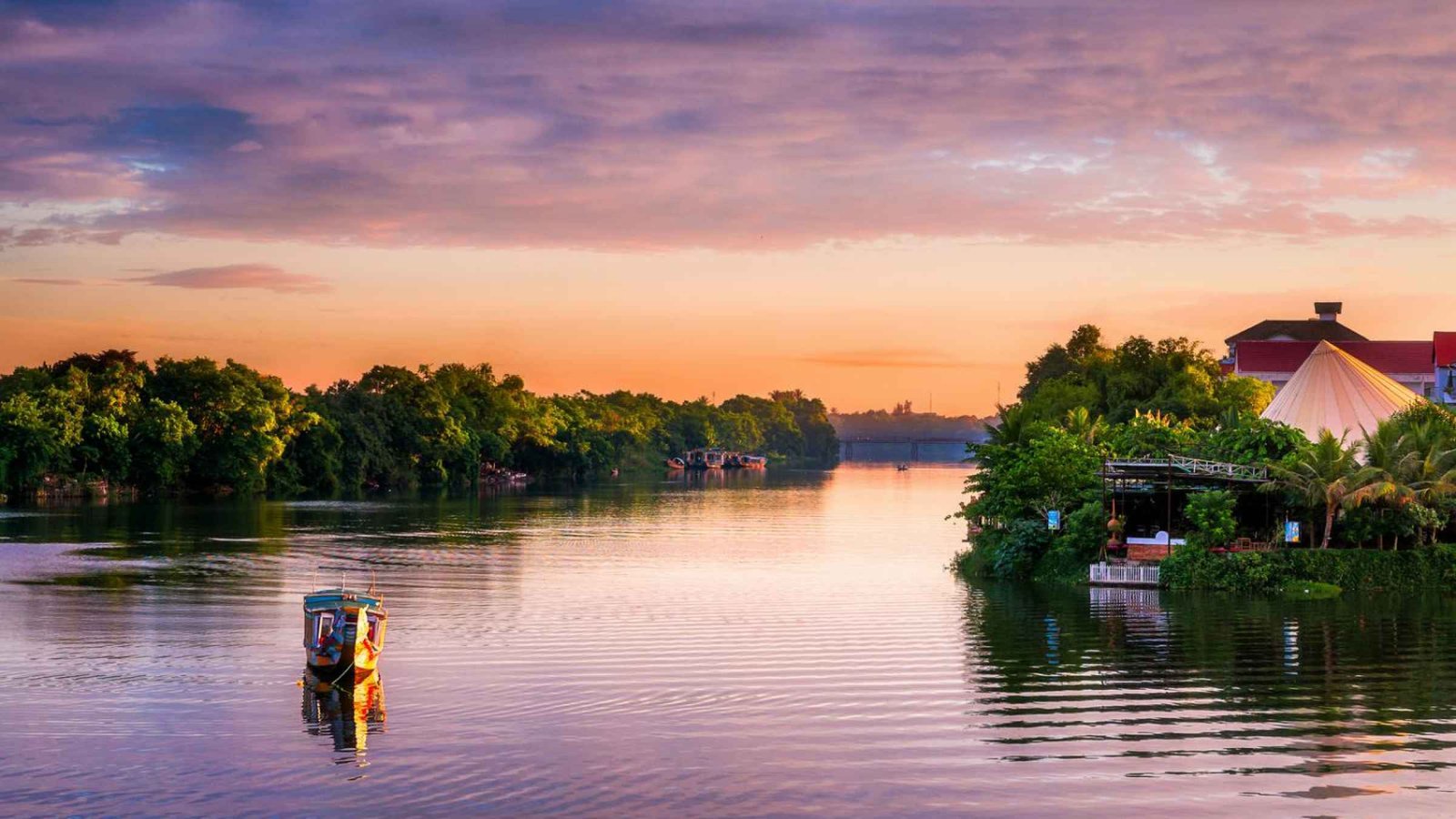
Welcome to the enchanting Perfume River, the iconic waterway that winds its way through the historic city of Hue in central Vietnam. Named after the fragrant flowers that fall into its waters, the Perfume River is not only a picturesque natural attraction but also a cultural and historical symbol of Hue. Join us on a travel guide-style journey as we explore the delights of the Perfume River, from its scenic beauty to its notable landmarks and traditional experiences.
The Perfume River flows gently through the heart of Hue, dividing the city into two distinct halves. It holds immense historical and cultural significance, as it served as inspiration for poets, artists, and musicians throughout the centuries. The river is an integral part of Hue’s identity and has played a vital role in shaping the city’s heritage.
Embark on a river cruise along the Perfume River and immerse yourself in its scenic beauty. The banks are lined with lush greenery, dotted with traditional houses, pagodas, and royal tombs. Admire the reflections of the surrounding landscapes on the calm waters as you sail leisurely through the heart of Hue. Sunset cruises are particularly enchanting, offering breathtaking views of the river as the sky transforms into a canvas of vibrant hues.
The Perfume River is home to several significant landmarks and royal tombs, adding to its cultural allure. Discover the imposing Imperial City, a UNESCO World Heritage Site, located on the northern bank of the river. Explore the magnificent royal tombs, such as the Tomb of Emperor Minh Mang and the Tomb of Emperor Tu Duc, which are nestled along the river’s scenic route. These architectural marvels showcase the grandeur and opulence of Vietnam’s imperial past.
No visit to the Perfume River would be complete without a visit to Thien Mu Pagoda, an iconic symbol of Hue. Located on the northern bank of the river, the pagoda is a seven-tiered structure that towers above the surrounding landscape. Admire the intricate architecture, explore the temple grounds, and enjoy panoramic views of the river and city from its vantage point. Don’t miss the chance to witness the daily rituals and ceremonies that take place within the pagoda.
The Perfume River is closely associated with vibrant festivals that celebrate the cultural heritage of Hue. One of the most notable events is the Perfume Pagoda Festival, held annually during the spring. Locals and visitors alike gather to pay homage to Buddha and seek blessings for the year ahead. The river becomes a focal point for various traditional activities, including boat races, folk performances, and colorful processions.
Immerse yourself in the rich traditions and local way of life along the Perfume River. Engage in a unique cultural experience by trying your hand at traditional fishing techniques alongside local fishermen. Participate in a lantern-making workshop and create your own colorful lantern, a symbol of good luck and prosperity. Indulge in a leisurely riverside picnic, savoring local delicacies while enjoying the serene ambiance of the river.
The Perfume River offers a captivating journey through Hue’s cultural heritage, inviting you to discover its scenic beauty, historical landmarks, and traditional experiences. From tranquil river cruises to exploring royal tombs and
Subscribe to see secret deals prices drop the moment you sign up!
